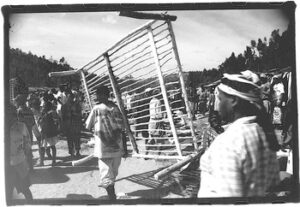In an unprecedented move, the Paris Administrative Court convened on Thursday to hear allegations that France played a “complicit” role in the 1994 genocide in Rwanda. The hearing, brought forward by associations representing survivors, aims to examine what they argue was tacit support from the French state during the violent extermination of Rwanda’s minority Tutsi population and moderate Hutus.
Survivor groups are pursuing $540 million in reparations, accusing France of supporting Rwanda’s then-government through a series of actions, including a controversial defense agreement, covert arms supplies, and the abandonment of civilians during the genocide. This case marks the first time these accusations have reached an administrative court, following previous criminal cases that ultimately stalled without a resolution.
Also, read; Achraf Hakimi and Ademola Lookman Lead CAF Men’s Player of the Year Award Shortlist
The genocide, which unfolded over 100 harrowing days, led to the deaths of more than a million people. The massacre was eventually halted when the Tutsi-led Rwandan Patriotic Front, headed by current President Paul Kagame, succeeded in forcing the Hutu army and a significant number of Hutu civilians to flee Rwanda.
Paris has consistently denied culpability, asserting that the administrative court lacks the jurisdiction to rule on the case. However, the shadow of France’s alleged involvement has persisted for decades. President Emmanuel Macron acknowledged in 2021 that France and its allies could have intervened to prevent the genocide but failed to act decisively.
The court’s decision is expected on November 14, a date that may prove pivotal in clarifying France’s historical accountability in one of the 20th century’s darkest chapters. For survivors, the judgment offers a potential path to acknowledgment and reparations, while for France, it reignites a deeply controversial chapter in its foreign policy history.
